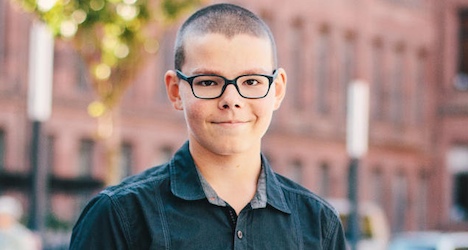Bastian Eichenberger, 14, has enrolled for the 2014-2015 year at the University of Freiburg, a public research university in Baden-Württemberg, where he is pursuing studies in chemistry.
Eichenberger, from Oberwil in the canton of Basel-Country, graduated from the equivalent of high school at the age of 13, said the university in a press release issued on Monday.
The wunderkind decided to attend the German university because he is interested in research, such as the development of new drugs, and wants to learn more about the cultural differences between Germany and Switzerland, according to the release.
Eichenberger, who was raised partly in Singapore, was identified as a gifted child at the age of five, the university said.
His family moved back to Switzerland where he pursued private lessons before attending a private school.
He now speaks nine languages, with proficiency in German, English, French, Spanish, Italian and Chinese, the university said.
See also: NINE-YEAR-OLD PRODIGY APPLIES TO ZURICH UNI
The whiz kid likes reading, movies and TV shows but also enjoys a wide variety of sports, including judo, golf, tennis, curling, boxing and skiing.
He plays the piano and is a member of the youth fire brigade, the university said.
Because of the proximity of the university to Basel, located near the German border, Eichenberger is commuting to classes every day.
The university said he is the youngest person currently studying there.
Swiss newspaper 20 Minutes went further, reporting that he is the youngest student studying at any German university.



 Please whitelist us to continue reading.
Please whitelist us to continue reading.
Member comments